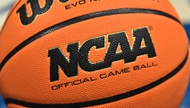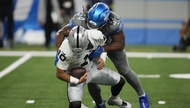The world’s most prestigious sports-betting contest has already produced what felt like the world’s most embarrassing losing streak this NFL season. Before the Denver Broncos blew out the Tampa Bay Buccaneers, 27-7, as 3-point favorites on Sunday, 16 straight consensus picks in the Westgate Las Vegas Superbook’s Supercontest had lost. The odds against 16 straight sides losing (or winning, for that matter) are more than 65,000-to-1.
It seems even more unlikely in the Supercontest, which is to sports betting what the World Series of Poker is to card playing. A mixture of top professional bettors and recreational players pony up a $1,500 entry fee to enter the competition each year, then make five plays apiece against the spread each week, with hopes of posting the best overall record to win a first-place prize of $906,675 this season. Picks are due weekly at 11 a.m. on Saturday, and the Westgate reveals five most popular sides—reported as “consensus plays”—on its website shortly afterwards.
Those picks have fared exceptionally well in the past. From 2010 to 2012, they went a combined 135-105-15, a wildly profitable 56 percent against the spread. But with such plays sitting at 4-16 through four weeks this season, it’s going to be difficult for them to touch .500.
The downslide began with Week 1’s afternoon games, when the New York Giants defeated the Dallas Cowboys, 20-19, but failed to beat the 1.5-point spread. None of the next 15 losses were that close, and many of them were particularly egregious. The most popular overall pick: Pittsburgh laying 3.5 points at Philadelphia, with 663 contestants backing the Steelers. The Eagles won, 34-3, the second-largest blowout in any game thus far.
Although a 16-game losing streak is extreme and unlikely to repeat, it’s hardly surprising the consensus picks are less reliable than they once were. For its first two decades, Supercontest participants were almost entirely high rollers who gambled on sports for a living. When the consensus picks began circulating in 2010, there were still just 345 entrants in the competition. But in the past few years, social media and coverage from mainstream sources like ESPN has exposed the Supercontest to a wider demographic. This year it attracted a record 1,854 bettors, meaning hobbyists now far outnumber professionals.
This makes the consensus picks more a reflection of which teams the public at large is backing than elite sports bettors’ choices. Going against majority opinion has been a longtime, popular sports-betting strategy, and if this season’s Supercontest struggles have taught us anything, it’s that the contrarian approach can still work.





